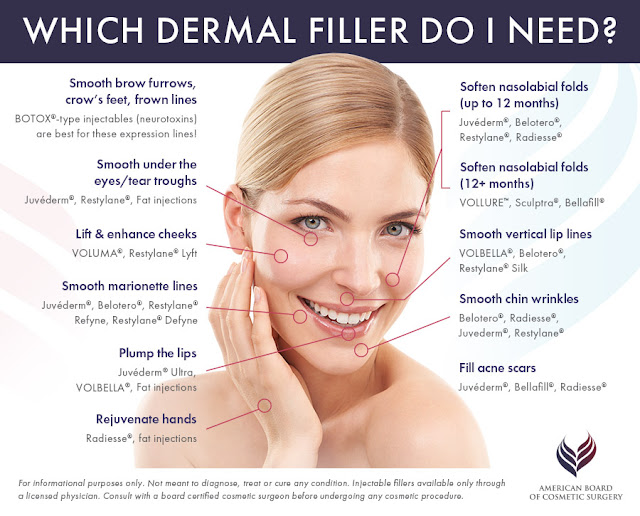Best Hair Loss Treatments for Men in Malaysia 2022
If you are looking for the best hair loss treatment for men in Malaysia, you are in the right place. According to the American Hair Loss Association, about 85% of men will have significant hair thinning by the time they turn 50, and some men will even begin to lose hair as early as 21.
Male pattern baldness, also known as androgenetic alopecia, is an inherited trait. It affects more than half of men over the age of 50. However, if you equip yourself with the facts, you can tackle this challenging phase of your life with confidence.
The key is to know what type of hair loss you’re experiencing, what’s causing it, and the different treatment options available to you.
Before you go out and buy supplements and special tonics, learn which ones have shown some promise in preventing or treating hair loss. There are viable solutions, starting with topical hair growth treatments. Finding one that works for you, however, can be easier said than done. But we’re here to help.
Here are hair loss treatments you can talk to your doctor about:
Male pattern baldness, also known as androgenetic alopecia, is an inherited trait. It affects more than half of men over the age of 50. However, if you equip yourself with the facts, you can tackle this challenging phase of your life with confidence.
The key is to know what type of hair loss you’re experiencing, what’s causing it, and the different treatment options available to you.
Before you go out and buy supplements and special tonics, learn which ones have shown some promise in preventing or treating hair loss. There are viable solutions, starting with topical hair growth treatments. Finding one that works for you, however, can be easier said than done. But we’re here to help.
Here are hair loss treatments you can talk to your doctor about:
1. Prescription and OTC drugs
The U.S. Food and Drug Administration (FDA) has approved two drugs to treat male pattern baldness:

MYR 297 (10% OFF) > Lazada Malaysia (sold by Minoxidil Mart)
2. Hair transplants
The two most popular hair transplant procedures are follicular unit transplantation and follicular unit extraction:
Follicular unit transplantation (FUT)
FUT is the more “classic” method. It involves removing some skin from the back of your scalp where there’s an abundance of hair, removing the follicles from that strip of skin, and then reinserting the hair follicles into the part of the scalp where you’re experiencing hair loss.
Follicular unit extraction (FUE)
In FUE, hair follicles are removed directly from the scalp and transplanted to the bald parts of the scalp.
Keep in mind that a hair transplant is considered a surgery, so it can be expensive and may be painful.
There are also certain risks, including infections and scarring. You may also need to do multiple hair transplant treatments to get the desired outcome.
A balanced diet
A well-balanced diet can keep your hair in tip-top shape. Make sure you’re including a variety of vegetables, fruits, whole grains, unsaturated fats, and lean proteins in your diet, and limit your intake of sweets.
Certain vitamins and minerals found in food are associated with healthy hair.
Try adding in these types of foods:
There’s some evidence that taking biotin supplements by mouth may slow hair loss, but most of the research has been done in women.
Reduce stress
Stress can really do a number on the body, including your hair. Hair loss may be a result of a stressful lifestyle.
Strategies to reduce stress include:
5. Hair Loss Shampoo
Men who want to incorporate more than one hair loss product into their regimen should check out shampoos that promote regrowth and reduce thinning. Nioxin’s Cleanser Shampoo is a solid choice for men whose hair is just beginning to thin or fall out.
Sources:
- Minoxidil (Rogaine): Rogaine is available over the counter as a liquid or foam. Apply it to the scalp twice a day to grow hair and prevent hair loss.
- Finasteride (Propecia, Proscar):This is a pill that you take daily. It’s only available with a prescription from your doctor.

MYR 297 (10% OFF) > Lazada Malaysia (sold by Minoxidil Mart)
2. Hair transplants
The two most popular hair transplant procedures are follicular unit transplantation and follicular unit extraction:
Follicular unit transplantation (FUT)
FUT is the more “classic” method. It involves removing some skin from the back of your scalp where there’s an abundance of hair, removing the follicles from that strip of skin, and then reinserting the hair follicles into the part of the scalp where you’re experiencing hair loss.
Follicular unit extraction (FUE)
In FUE, hair follicles are removed directly from the scalp and transplanted to the bald parts of the scalp.
Keep in mind that a hair transplant is considered a surgery, so it can be expensive and may be painful.
There are also certain risks, including infections and scarring. You may also need to do multiple hair transplant treatments to get the desired outcome.
3. Laser treatment
Laser treatment is thought to reduce the inflammation in follicles that keeps them from regrowing.
There are limited studies to support their effectiveness in treating hair loss, but a 2016 review determined that low-level laser therapy (LLLT) is safe and effective when used to treat male pattern hair loss. More research is still needed.
Laser treatment is thought to reduce the inflammation in follicles that keeps them from regrowing.
There are limited studies to support their effectiveness in treating hair loss, but a 2016 review determined that low-level laser therapy (LLLT) is safe and effective when used to treat male pattern hair loss. More research is still needed.
4. Lifestyle Changes
Quit smoking
If you’re a smoker, you’ve probably heard about all the negative effects smoking has on your lungs. But did you know that smoking could cause hair loss — on top of facial wrinkles and premature graying of hair?
Research has determined that there’s a link between smoking and hair loss. To prevent hair loss, it may be a good idea to quit smoking as soon as possible.
Quit smoking
If you’re a smoker, you’ve probably heard about all the negative effects smoking has on your lungs. But did you know that smoking could cause hair loss — on top of facial wrinkles and premature graying of hair?
Research has determined that there’s a link between smoking and hair loss. To prevent hair loss, it may be a good idea to quit smoking as soon as possible.
A balanced diet
A well-balanced diet can keep your hair in tip-top shape. Make sure you’re including a variety of vegetables, fruits, whole grains, unsaturated fats, and lean proteins in your diet, and limit your intake of sweets.
Certain vitamins and minerals found in food are associated with healthy hair.
Try adding in these types of foods:
- iron-rich foods, including lean beef, beans, green leafy vegetables, iron-fortified grains, and eggs
- foods rich in omega-3 fatty acids, such salmon, mackerel, tuna, flax seeds, egg yolks, hemp seeds, and walnuts
- high-protein foods, like eggs, lean meats, and seafood
- foods with Biotin, like nuts, sweet potatoes, eggs and onions
Reduce stress
Stress can really do a number on the body, including your hair. Hair loss may be a result of a stressful lifestyle.
Strategies to reduce stress include:
- regular exercise
- listening to music
- doing yoga
- meditating
- getting enough sleep
- stay focus and know your priorities
5. Hair Loss Shampoo
Men who want to incorporate more than one hair loss product into their regimen should check out shampoos that promote regrowth and reduce thinning. Nioxin’s Cleanser Shampoo is a solid choice for men whose hair is just beginning to thin or fall out.
Nioxin Cleanser Shampoo


RM 87 (67% OFF): Lazada Malaysia
Nioxin’s Level 1 shampoo works to thicken and strengthen existing hair. Its thickening formula may reduce hair loss that’s related to thinning, broken strands. This salon-quality shampoo also uses a concentrated blend of botanicals and humectants for light moisture that won’t weigh your hair down. The shampoo claims that its detoxifying formula also removes excess oil and grease for a cleaner, healthier scalp.
Related: Best Shampoo for Hair Loss and Hair Fall Malaysia
6. Find a Hair Loss Specialist in Malaysia
Aside from your genetics, there are several medical conditions that can result in hair loss. You’ll be able to address your hair loss by treating the underlying condition.
The following conditions could lead to hair loss:
Aside from your genetics, there are several medical conditions that can result in hair loss. You’ll be able to address your hair loss by treating the underlying condition.
The following conditions could lead to hair loss:
- diabetes
- lupus
- lichen planus
- sarcoidosis
- scalp psoriasis (due to scratching of the scalp)
- alopecia areata
- thyroid conditions
- eating disorders (due to poor nutrition)
- iron deficiency anemia
- hair pulling disorder, known as trichotillomania
- Celiac disease
- syphilis
Certain medications can also lead to hair loss. Examples include:
- chemotherapy and radiation treatments
- blood thinners (anticoagulants)
- drugs to treat depression
- medications used to treat high blood pressure
- heart medications
- gout medications
- isotretinoin (Accutane), an acne treatment
Related: Hair Loss Treatment Malaysia Price
- Adirahan, N., Kumar, R. Shanmugasundaram, N., & Babu, M. (2003). In vivo and in vitro evaluation of hair growth potential of Hibiscus rosa-sinensis Linn [Abstract]. Journal of Ethnopharmacology, 88(2-3), 235-239 ncbi.nlm.nih.gov/pubmed/12963149
- Androgenetic alopecia. (2017, April) ghr.nlm.nih.gov/condition/androgenetic-alopecia
- Arca, E., Acikgoz, G., Yeniay, Y., & Caliskan, E. (2014, December). The evaluation of efficacy and safety of topical saw palmetto and trichogen veg complex for the treatment of androgenetic alopecia in men [Abstract]. Turk Dermatoloji Dergisi, 8(4), 210-215 doaj.org/article/24b0547b7b544980872fdb66e3680b10
- Comparing hair transplantations. (n.d.) bosley.com/blog/comparing-hair-transplantation-methods-fue-fut/
- Datta, K., Singh, A. T., Mukherjee, A., Bhat, B., Ramesh, B., & Burman, A. C. (2009). Eclipta alba extract with potential for hair growth promoting activity. Journal of Ethnopharmacology, 124(3), 450-456 sciencedirect.com/science/article/pii/S0378874109003122
- Drug induced hair loss. (n.d.) americanhairloss.org/drug_induced_hair_loss/
- Esfandiari, A., & Kelley, P. (2005). The effects of tea polyphenolic compounds on hair loss among rodents. Journal of the National Medical Association, 97(6), 816-818 ncbi.nlm.nih.gov/pmc/articles/PMC2569505/
- Famenin, S. & Goh, C. (2014, July). Evidence for supplemental treatments in androgenetic alopecia. Journal of Drugs in Dermatology, 13(7), 809 jddonline.com/articles/dermatology/S1545961614P0809X#close
- Oh, J. Y., Park, M. A., & Kim, Y. C. (2014). Peppermint oil promotes hair growth without toxic signs. Toxicological Research, 30(4), 297-304 ncbi.nlm.nih.gov/pmc/articles/PMC4289931/
- Park, S. Y., Na, S. Y., Kim, J. H., Cho, S., & Lee, J. H. (2013). Iron plays a certain role in patterned hair loss. Journal of Korean Medical Science, 28(6), 934-938 ncbi.nlm.nih.gov/pmc/articles/PMC3678013/
- Sharquie, K., & Al-Obaidi, H. (2002). Onion juice (Allium cepa L.), a new topical treatment for alopecia areata. Journal of Dermatology, 29(6), 343-346 onlinelibrary.wiley.com/doi/10.1111/j.1346-8138.2002.tb00277.x/full
- Trüeb R. M. (2003). Association between smoking and hair loss: Another opportunity for health education against smoking? [Abstract]. Dermatology, 206, 189-191 karger.com/Article/Abstract/68894
- Zarei, M., Wikramanayake, T. C., Falto-Aizpurua, L., Schachner, L. A., & Jimenez, J. J. (2016, February). Low level laser therapy and hair regrowth: an evidence-based review [Abstract]. Lasers in Medical Science, 31, 363-371 link.springer.com/article/10.1007%2Fs10103-015-1818-2






Comments
Post a Comment